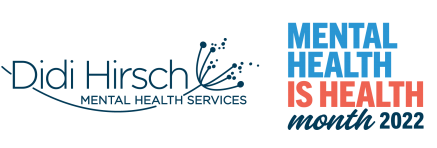Mental Health Strategies
Mental Health Strategies for Youth
Effective coping tools students can incorporate into their routines include:
- Practice deep breathing: Try Box Breathing. Inhale for 4 seconds, hold for 4 seconds, exhale for 4 seconds and hold again for 4 seconds. Repeat until you feel grounded.
- Journaling: “Write like nobody’s reading!” – Susan David
- Artistic expression: Paint, draw, collage, dance, sing, cook, write, whatever helps you feel better.
- Grounding techniques: Look around you and count everything you see that is blue, or check your 5 senses – what can I smell, hear, feel, see, and taste? Sometimes a short distraction can get you out of your emotions.
- Positive self-talk: What would you tell your best friend? Make it short and make it believable! “I’m good listener” or “I can do it!” or “I got this!” Be your own best cheerleader.
- Challenge negative thoughts: Talk back to those negative thoughts when they pop up.
- Get a good night’s sleep: Put your electronics away, take a hot bath, power down, tell your brain out loud, “It’s time to sleep” or find a sleep meditation app to help you fall asleep.
- Hygiene: Stay healthy by staying fresh and clean. Exercise: Move your body. Whatever activity you choose it will help manage your stress and keep you healthy.
- Meditation: It’s all about being in the “here and now” – quiet your mind and breathe, think about a place that makes you happy, listen to music, use a meditation app, or just sit quietly. Try not to judge any of the random thoughts that may pop up. Just notice them and let them float away.
- Avoid school stress: Schedule your assignments and important dates so you know what’s coming up each week.
- Set realistic goals: Make sure they are achievable so you feel like you can make progress and are inspired to keep learning.
- Identify a trusted adult: Consider a counselor, aunt, older cousin, or parent to talk to when you are feeling stressed or need help.
- Need more immediate help?
- Call 800-273-8255.
- If you are a teen, you can call 800-852-8336 or text TEEN to 839863 from 6-9pm PST.

Mental Health Strategies for Parents
Identify symptoms of child anxiety, depression, or other effects of trauma. Depending on age, this can look like regression, resistance, increased separation anxiety, crying spells, low motivation/energy, withdrawal, defiance, irritability, changes to eating/sleeping/grades or worsened physical health.
- Be compassionately curious, validating and patient: It promotes healing, safety and security in the relationship
- Teach and reinforce self-soothing and coping strategies: This includes positive self-talk, deep breathing, grounding techniques, and exercise for depression, anxiety or stressful social situations
- Be an advocate: Talk to the school and inform the teacher of the struggle. Get mental health care
- Manage your own mental health: Get help for your own anxiety, depression, substance use, or trauma

Mental Health Strategies for Educators
As schools reopen for in-person learning, it is essential for educators to remain attuned to and create space for students’ socioemotional needs.
- Provide ongoing emotional support: Be a listening ear and refer students to mental health counselors and appropriate hotlines (800-273-8255). This will directly benefit students’ academic achievement, overall health and wellbeing.
- Detect patterns in behavior and identify stressors: By doing so, teachers can respond swiftly to signs of emotional dysregulation and build a safe and healing environment.
- Partner with local experts (Didi Hirsch) on staff training: This includes identifying warning signs, suicide prevention, trauma-informed approaches, and just-in-time consultation.
- Engage youth in solutions. Peer advisory groups for youth by youth can have a big impact.

Seeking Help
If your regular coping strategies are not enough:
- Reach out for help: You are not alone. Reach out to anyone, like a friend, family member, clergy member, neighbor, teacher, or counselor.
- Call a local mental health agency such as Didi Hirsch: We have trained clinicians who can help individuals of any age improve their mental health and overcome any crisis. (Contact: 888-807-7250)
- Contact a crisis line. If you are crisis or feel you need immediate help, you can call 800-273-8255.


